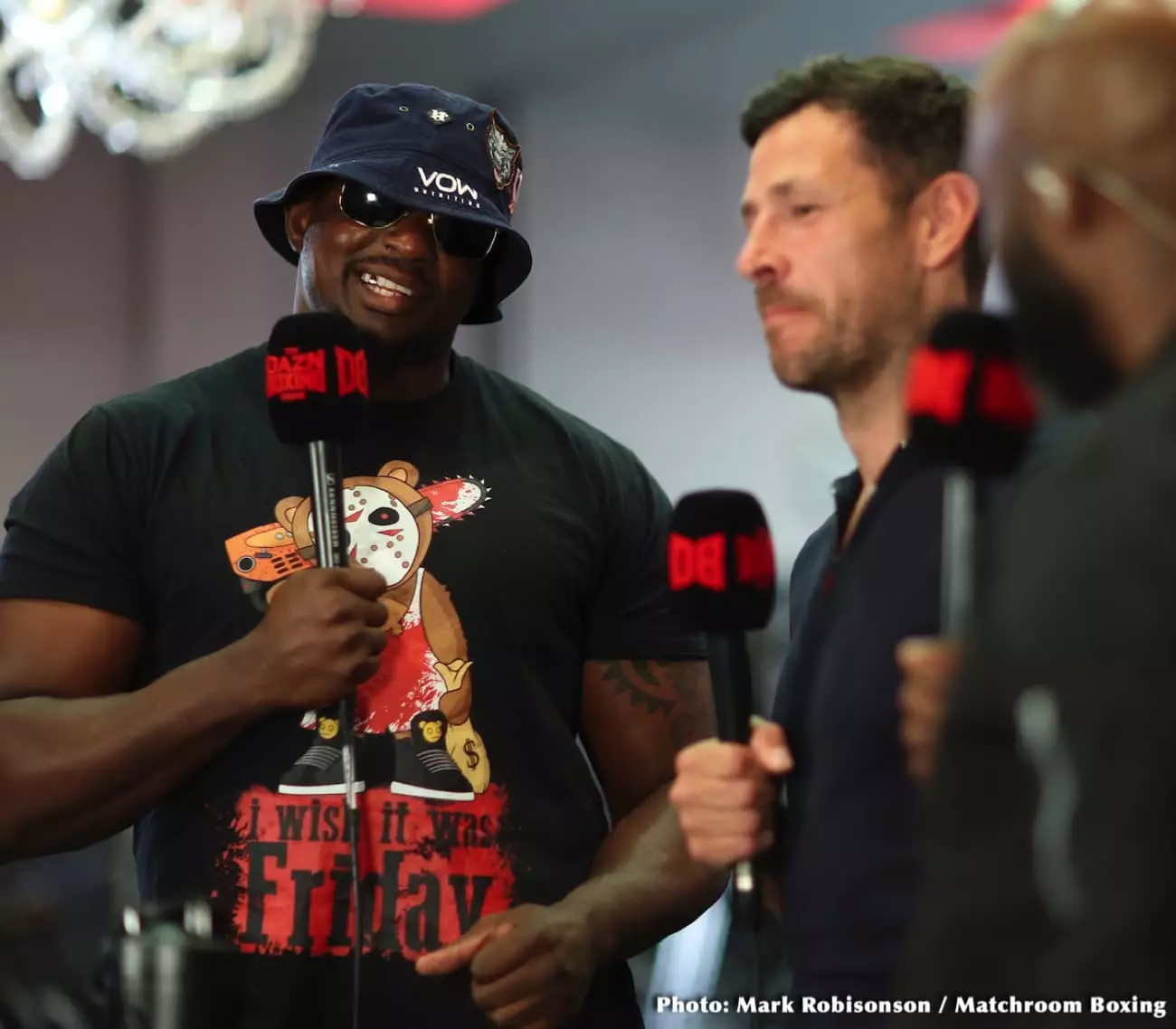Dillian Whyte is undoubtedly a significant figure in the heavyweight boxing landscape, but the question lingering over him is whether he still has the competitive edge to thrive among the elite. At 37 years old, with a career that has been marked by ups and downs, Whyte remains outspoken about his ambitions, insisting he still seeks meaningful confrontations that could redefine his standing in the sport. The battle against time seems to be just as formidable as any opponent he has ever faced, and the recent performances have left fans and analysts questioning what more he has to offer in the ring.
A Fight Against Age and Performance Anxiety
Critically examining Whyte’s recent form sheds light on the reasons for skepticism regarding his prospects. His last outing against Ebenezer Tetteh was far from impressive, revealing a decline that cannot simply be dismissed as a one-off poor performance. That fight raised eyebrows, particularly when you consider Tetteh’s subsequent demise in the ring against a rising star like Frazer Clarke, who dispatched him in under a minute. It begs the question: has Whyte lost his sharpness, or is he merely experiencing the natural wear and tear of a long and strenuous career?
Despite such concerns, Whyte continues to harbor aspirations of competing against the heavyweights that made headlines and headlines far beyond the confines of the boxing community. During a recent interview, he expressed his eagerness for a packed summer schedule, citing his desire to fight notable names such as Anthony Joshua, Joseph Parker, and Deontay Wilder. While it is commendable that Whyte remains optimistic about his future, it feels somewhat disconnected from the reality of his recent performances. In a sport where agility, power, and quick-thinking can suddenly dwindle, it is necessary for Whyte to back his bravado with tangible improvement.
The Fight Card and New Opponent Dynamics
Whyte’s upcoming bout against New Zealander Hemi Ahio invites a mix of curiosity and caution. The significance of this match cannot be understated; a resurgence could offer Whyte the momentum he desperately needs. Ahio, with a noteworthy record of 24 wins and only one loss, presents a formidable challenge. A loss for Whyte could hurt not only his record but also his self-esteem and professional reputation. The road to redemption isn’t merely about competing; it’s about showcasing growth and skill that warrants respect among high-level opponents.
Moreover, it raises a critical point about the matchmaking strategies in boxing. Whyte’s management appears keen to maintain his profile by placing him on high-profile fight cards, but one must question if this approach is truly helpful. Do fights with younger, resilient talent, such as Ahio, provide the route back to his competitive days, or do they risk further alienating Whyte’s standing in a sport that continues to evolve at a breakneck speed?
The Weight of Past Accomplishments
Whyte’s history is undoubtedly decorated. His previous victories, including significant wins against fighters like Parker, are testament to his potential and tenacity. Nevertheless, nostalgia can only go so far in a sport that prioritizes present capabilities over past glories. The prospect of a trilogy with Joshua or a rematch with Parker adds layers of drama, but these fights must be earned. Whyte’s earlier success will not shield him from scrutiny; fans and analysts alike will likely assess his capabilities based on each performance leading up to such high-stakes matchups.
In the grand tapestry of heavyweight boxing, every fighter must confront the relentless march of time and the evolution of their sport. Dillian Whyte is at a crossroads, caught between the aspiration to reclaim his place and the stark realities of competitive decline. As he gears up for his next bout, the spotlight will scrutinize whether he can convert ambition into tangible success in the ring. Failing to show improvement may lead to the harsh conclusion that the era of Dillian Whyte is waning, leaving behind only a flicker of what once was a powerful presence in heavyweight boxing.

